
DAMASCUS, Jan. 15 (Xinhua) -- Dozens of people were killed or injured Tuesday when two rockets struck the main university of Syrian northern Aleppo city, activists and local media said, as mortar shells rained down districts of the capital Damascus, killing one person and injuring others.
The twin rockets hit the faculty of Information Engineering in the University of Aleppo, ripping off the facade of the faculty and filling its vicinity with mounds of debris, broken glass and pools of blood, according to a footage aired by the state TV.
The country's official news agency SANA said the rockets were launched by armed "terrorists," a term used by the government to refer to the rebels. It did not disclose the number of casualties, but the oppositional Syrian Observatory for Human Rights, a London- based group, said 15 people were killed in the blast.
The observatory, however, stopped short of specifying the reason behind the blast.
Meanwhile, the pro-government news network Ajel quoted the governor of Aleppo as saying that the death toll of the Aleppo blast was 82 people, with more than 160 injured.
Media reports indicated that the rockets were launched from an area close to al-Layramoun roundabout and were meant to bring down a war jet flying overhead. The state media said the university was in session on Tuesday as it was the first day for semester exams. It said later that the exams have been postponed indefinitely in the carnage-hit university.
After the deadly blasts, two other shells slammed the Bani-Zaid district in Aleppo, causing an unknown number of causalities, said SANA.
The Syrian government and the rebels have traded accusations over the carnage in Aleppo, with the opposition activists alleging that the blast was caused by an airstrike on the area, a claim that was impossible of being confirmed.
Aleppo, Syria's largest city and a former economic hub, has emerged as the main focal point of deadly violence in Syria's 22- month-old crisis.
The armed rebels there have been pushing for territorial gains to control the city in hope of establishing their de facto capital in that crucial slice of Syria. However, most of the Aleppans have shown rejection to the presence of armed rebels and accused them of looting and burglary.
In the capital Damascus, meanwhile, four mortar shells struck two areas, killing one person and injuring others amid ongoing clashes elsewhere.
The first mortar slammed a government-run consumer corporation in al-Zablatani district in Damascus, killing the deputy manager of the facility and injuring a woman employee, according to local media reports.
The other three mortars landed at the Mazzeh 86 neighborhood west of Damascus, leaving property losses only. The district has been repeatedly targeted by rebels' mortars as it houses families and army officers from the minority Alawite, to which President Bashar al-Assad and the ruling elite belong.
The incidents come amid intensifying battles between the regular forces and armed rebels in several hotspots nationwide, mainly in the surrounding of Damascus, with reports of shelling, clashes and air raids that killed dozens, according to pro- opposition activists.
The intensification of violence comes as some countries suggested referring Syria to the International Criminal Court (ICC) .
On behalf of 56 states, Switzerland sent a petition to the UN Security Council on Monday, calling for referral of the Syrian conflict to the ICC. However, Russia, Syria's staunchest ally, dismissed the proposal as "ill-timed and counterproductive."
"We are convinced that the speculation on international criminal prosecution and search for culprits would only serve to perpetuate the rival parties to irreconcilable positions and complicate the search for ways of political and diplomatic settlement of the Syrian conflict," said a statement by the Russian Foreign Ministry.
Amidst the international stalemate, former UN-Arab League peace envoy for Syria Kofi Annan has blamed several regional countries of causing the impasse in Syria, saying that "many people in the region" were not in favor of the peace talks in Syria, adding that "there were moments when they could have stepped in to support. There was lip service to accept the six-point peace plan, but nothing happened."
He made the comment while launching his new book "Interventions, a Life of War and Peace" at the UN headquarters in New York.
Annan said his successor, Lakhdar Brahimi, was not getting the help he needed to succeed in his mediation role to solve the crisis in Syria, and criticized the countries which do not believe in mediation and lack the courage to even put forward an alternative.
He said the political solution should be put on the table, otherwise the killing will continue, warning that the conflict is becoming of a sectarian nature.
Syrian President Bashar al-Assad unveiled earlier in the month his vision to solve the Syrian crisis politically, proposing a cease-fire, followed by a comprehensive national dialogue conference and the establishment of a broad-based government and parliament. The Syrian opposition dismissed the new initiative as not enough to be a roadmap of a political process that could end the country's crisis, and demanded Assad's departure as a prelude for political process, otherwise they will continue fighting till the "liberation of Syria."
In an interview Monday with the BBC, Syrian Deputy Foreign Minister Faisal Mekdad said Assad would not step down and would run in next year's presidential elections.
"The president and many other candidates who may run will go to the people to put forward their programs and to be elected by the people," Mekdad said, adding that "it is a coup d'etat if we listen to what the armed groups and those enemies of Syria are proposing."
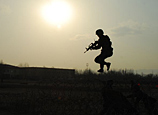
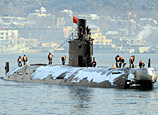

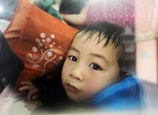
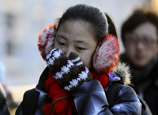
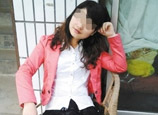










 Sichuan gets its first sperm bank
Sichuan gets its first sperm bank


![]()
